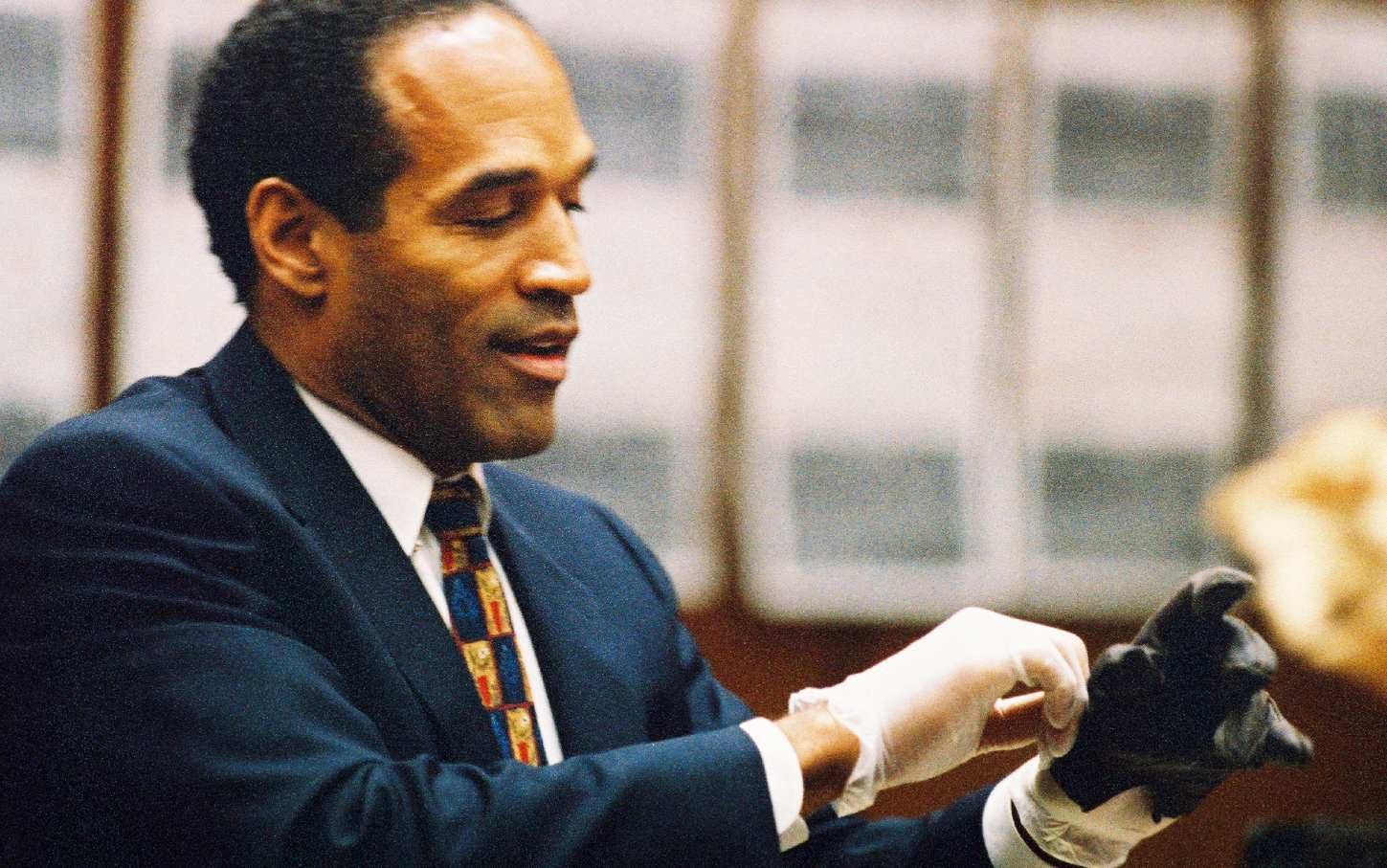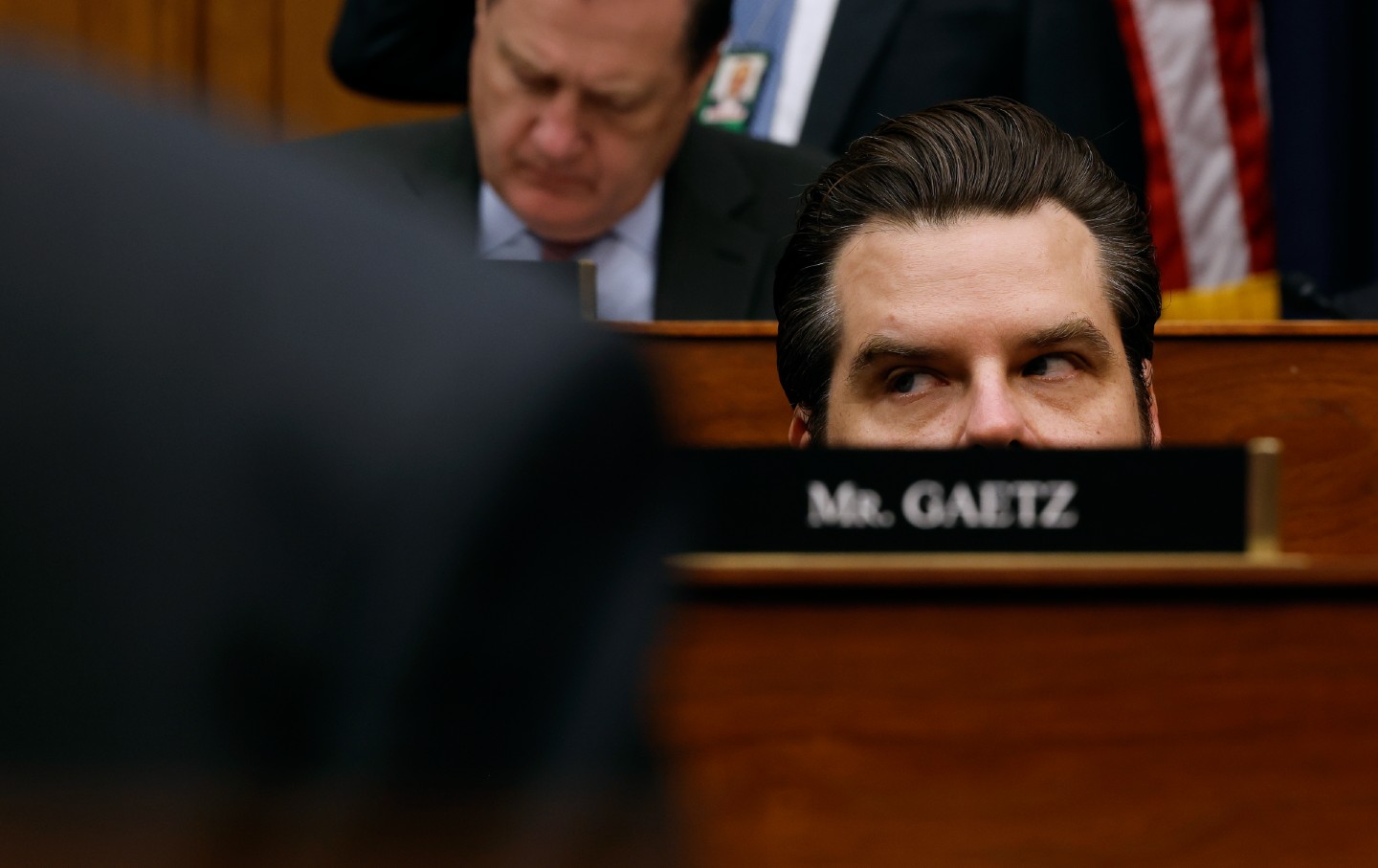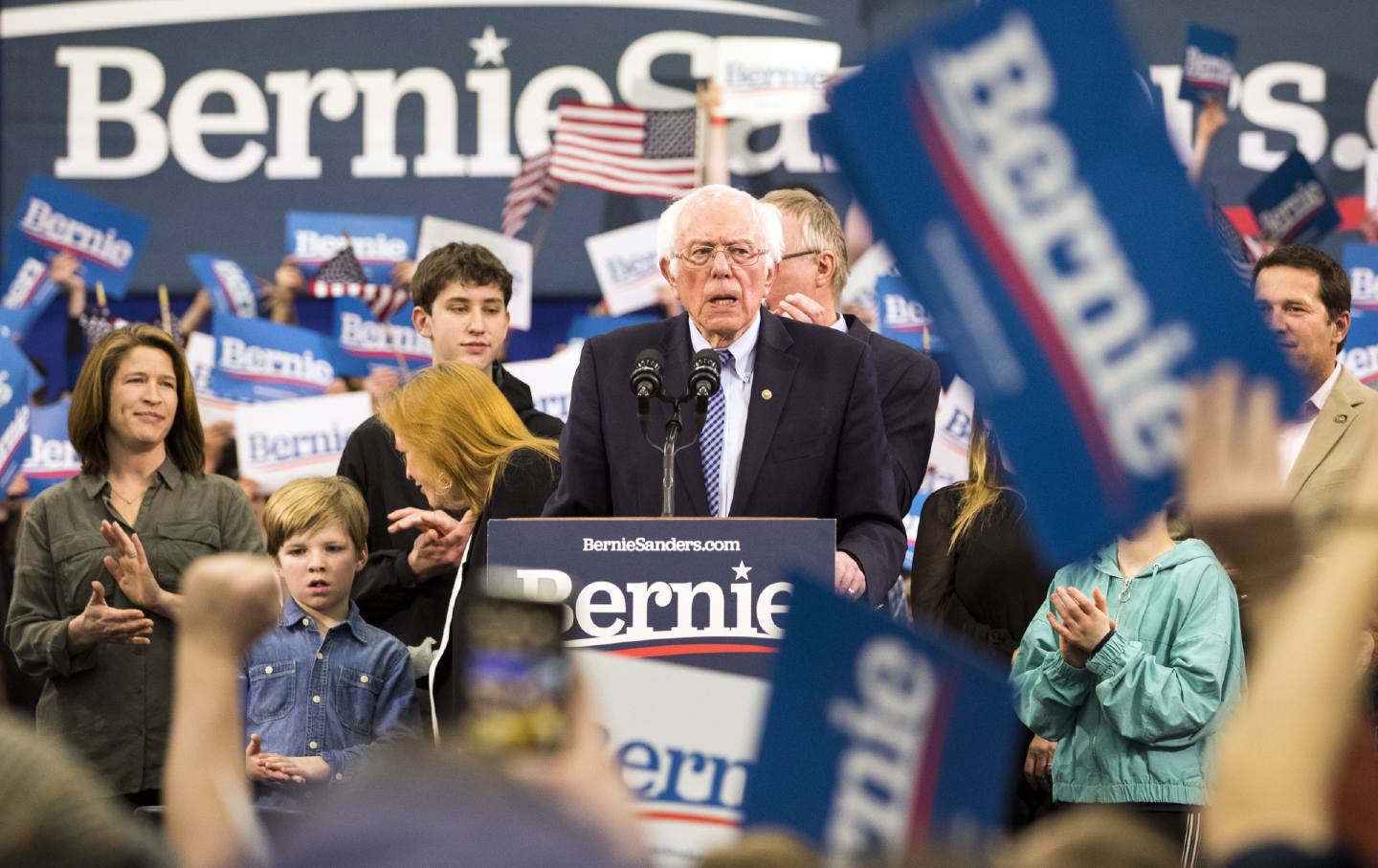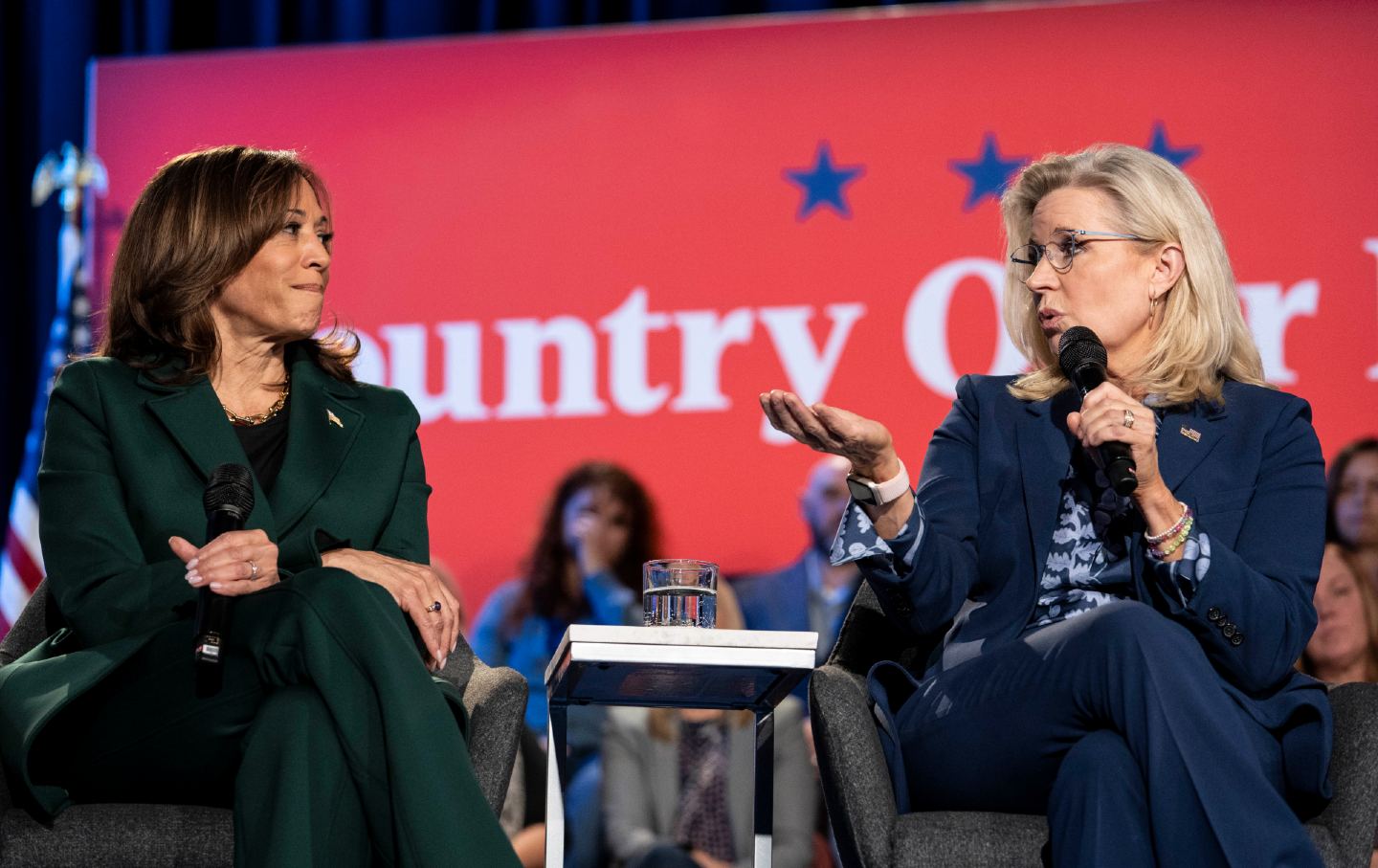O.J. Simpson Proved That With Enough Money You Can Get Away With Murder
O.J. Simpson Proved That With Enough Money You Can Get Away With Murder
The accused killer won and lost in court depending on his bank account.

After serving nine years in a Nevada prison on a dozen charges that included kidnapping and armed robbery, O.J. Simpson spent the last seven years living at the Rhodes Ranch Golf Club in Las Vegas as the guest of the country club’s well-heeled owner, James Barnett, who was a close friend of the football star. After a long and tumultuous life marked by repeated dramatic reversals of fortune, Simpson ended up enjoying his version of the good life, playing golf all day in the ultimate gated community with his wealthy white friends—who enjoyed basking in Simpson’s celebrity while ignoring the overwhelming likelihood that in 1994 he murdered his former wife, Nicole Brown Simpson, and her friend Ronald Goldman.
Simpson was acquitted of these murders in 1995 in a celebrated criminal case thanks to a legal defense that rested on establishing reasonable doubt because of demonstrable police misconduct, including racism. In that case he was represented by a very expensive “Dream Team” of high-powered attorneys, including Johnnie Cochran Jr., F. Lee Bailey, Alan Dershowitz, Barry Scheck, and Robert Shapiro.
But two years later Simpson was found guilty of the same murders in a civil suit brought by the Brown and Goldman families—a verdict based in large part on the lower standards of proof required in civil cases. Simpson finally suffered an adverse judgement in a criminal case in 2008—for breaking into a Los Vegas hotel room the previous year, an incident in which Simpson claimed he was recovering sports memorabilia that belonged him.
The O.J. Simpson saga is usually presented as a morality tale about racism in America. Indeed, the football star’s New York Times obituary made racism its central theme and had a sub-headline reading: “His trial for the murder of his former wife and her friend became an inflection point on race in America.” There is no denying that the trial polarized American public opinion along racial lines. Despite strong forensic evidence for Simpson’s guilt, the jury’s decision to acquit was justifiable given the documented racism of police officer Mark Fuhrman, a lead investigator, which allowed Simpson’s defense to raise reasonable grounds for distrusting the prosecution’s case.
But race isn’t the only important prism for understanding Simpson’s life. As legal scholar Crystal Weston cogently argued in a 1995 article for the Hastings Women’s Law Journal, gender and class are also central to understanding the murder trial. Weston rightly notes that while Simpson “may be Black, a least-favored status in this nation…he is also rich, famous and male, three most-favored-statuses from which he benefits greatly.” O.J. Simpson was enormously wealthy in 1995, thanks to not just his football career but also his post-sports role as the star of both advertising campaigns (being the public face of Hertz rental cars for many years) and movies (such as the Naked Gun franchise) whose earnings made him a multimillionaire.
“Race legitimately belonged in an analysis of the trial because of Fuhrman,” Weston concluded, “but race was allowed to dominate the trial analysis before the appearance of Fuhrman because this culture does not take misogynist violence seriously. Our society uses race as a smoke-screen to derail legitimate analysis based on gender and class.”
With considerable justice, Weston insists that the case was powerfully shaped by misogyny. Simpson had a long history of violence against Nicole Brown Simpson both during and after their marriage. She repeatedly called the police to report Simpson’s violence. As The New York Times notes,
The abuse left Nicole Simpson bruised and terrified on scores of occasions, but the police rarely took substantive action. After one call to the police on New Year’s Day, 1989, officers found her badly beaten and half-naked, hiding in the bushes outside their home. “He’s going to kill me!” she sobbed. Mr. Simpson was arrested and convicted of spousal abuse but was let off with a fine and probation.
Weston emphasizes that the police’s indulgence toward Simpson was a case where his status as a wealthy man—and a celebrity to boot—overrode all other considerations. Wealth played a similar role in his arrest: If he had been a poor black man, would he have been allowed to surrender after a slow 60-mile car chase?
The same kid-glove treatment continued after Simpson’s arrest, Weston points out:
Once he was caught…O.J.’s wealth and fame ensured that he was not charged with resisting arrest. Most importantly, his wealth allowed him to purchase the best legal defense that money could buy: the “Dream Team.” Certainly, O.J.’s wealth and celebrity status have brought him significantly more favorable treatment than that afforded most people.
The journalist Robert Scheer had a similar analysis in a 1995 op-ed for the Los Angeles Times, writing, “Blacks don’t have power; rich people do, and O.J. Simpson is one of the few who managed to cross that line. Being able to afford an army of top evidence experts is what made the difference in this case.”
If O.J. Simpson benefited from rich man’s justice in 1995, his subsequent trials showed him that even being moderately well-off was not as good as being fantastically rich. He still made $400,000 a year from his pension and Screen Actors Guild residuals—but that wasn’t enough to help him in his second bout of legal peril. The expense of paying for his “Dream Team” lawyers took a big bite out of his wealth, so his legal team in the civil suit wasn’t of the same caliber. By the time he faced criminal trial again in 2008, his finances were in an even more straitened state thanks to losing the civil suit. Lacking funds, Simpson experienced the full force of the law when it goes after someone who is not fabulously rich. The result was a nine-year stint in prison.
Simpson’s entire life is a parable of the power of money in America. He grew up poor and by dint of athletic prowess entered the realm of the super-rich. His fortune saved him from a murder conviction, although diminishing wealth made him legally vulnerable. But in the end, moneyed friends allowed him to enjoy a relatively gentle retirement playing golf. If there’s a lesson in this sordid story, it’s a reaffirmation of F. Scott Fitzgerald’s adage that the very rich are indeed “different from you and me.”
We cannot back down
We now confront a second Trump presidency.
There’s not a moment to lose. We must harness our fears, our grief, and yes, our anger, to resist the dangerous policies Donald Trump will unleash on our country. We rededicate ourselves to our role as journalists and writers of principle and conscience.
Today, we also steel ourselves for the fight ahead. It will demand a fearless spirit, an informed mind, wise analysis, and humane resistance. We face the enactment of Project 2025, a far-right supreme court, political authoritarianism, increasing inequality and record homelessness, a looming climate crisis, and conflicts abroad. The Nation will expose and propose, nurture investigative reporting, and stand together as a community to keep hope and possibility alive. The Nation’s work will continue—as it has in good and not-so-good times—to develop alternative ideas and visions, to deepen our mission of truth-telling and deep reporting, and to further solidarity in a nation divided.
Armed with a remarkable 160 years of bold, independent journalism, our mandate today remains the same as when abolitionists first founded The Nation—to uphold the principles of democracy and freedom, serve as a beacon through the darkest days of resistance, and to envision and struggle for a brighter future.
The day is dark, the forces arrayed are tenacious, but as the late Nation editorial board member Toni Morrison wrote “No! This is precisely the time when artists go to work. There is no time for despair, no place for self-pity, no need for silence, no room for fear. We speak, we write, we do language. That is how civilizations heal.”
I urge you to stand with The Nation and donate today.
Onwards,
Katrina vanden Heuvel
Editorial Director and Publisher, The Nation
More from
Jeet Heer 

Donald Trump’s Foreign Policy Will Be Chaos First, Not America First Donald Trump’s Foreign Policy Will Be Chaos First, Not America First
His team of cronies includes establishment hawks and cranky outsiders who are more likely to deliver global anarchy than world peace.

Donald Trump Is Waging a Shock-and-Awe War Against His Own Senate Donald Trump Is Waging a Shock-and-Awe War Against His Own Senate
By nominating Matt Gaetz and other dangerous cronies, the president-elect is testing congressional servility.

Bernie Sanders Is Right: Democrats Have Abandoned the Working Class Bernie Sanders Is Right: Democrats Have Abandoned the Working Class
The party chased former Republicans and rich donors, while alienating the working-class majority.

This Time We Have to Hold the Democratic Party Elite Responsible for This Catastrophe This Time We Have to Hold the Democratic Party Elite Responsible for This Catastrophe
Trump won because the opposition party is committed to ancien régime restoration in a country that desperately wants change.

Trump’s Anti-War Charade Deserves a Challenge Trump’s Anti-War Charade Deserves a Challenge
It’s a grave mistake for Democrats to let Trump be the only voice expressing revulsion at militarism.

Donald Trump Makes American Women an Offer They Can’t Refuse Donald Trump Makes American Women an Offer They Can’t Refuse
The former president wants to turn gender relations into a protection racket.


